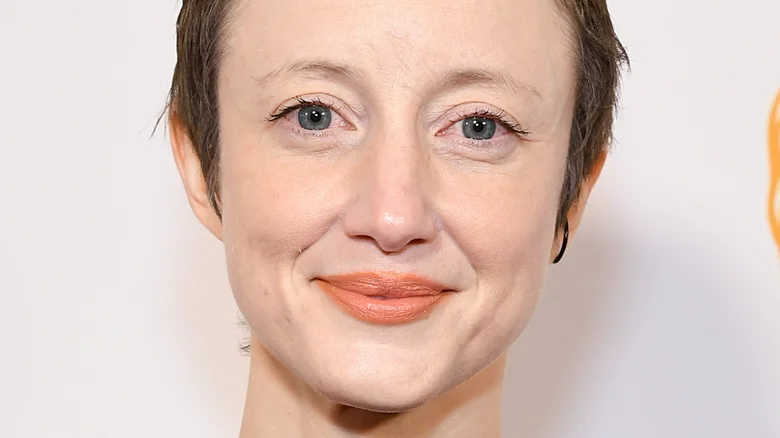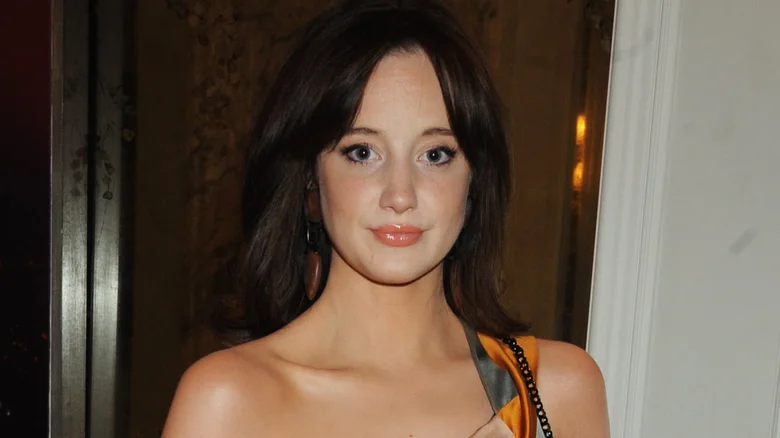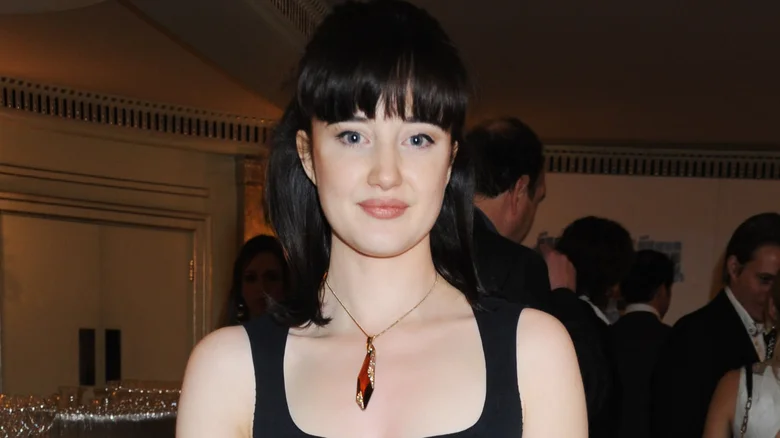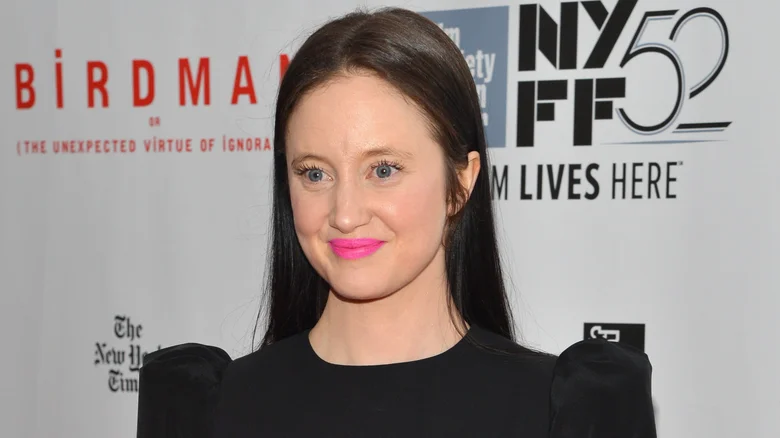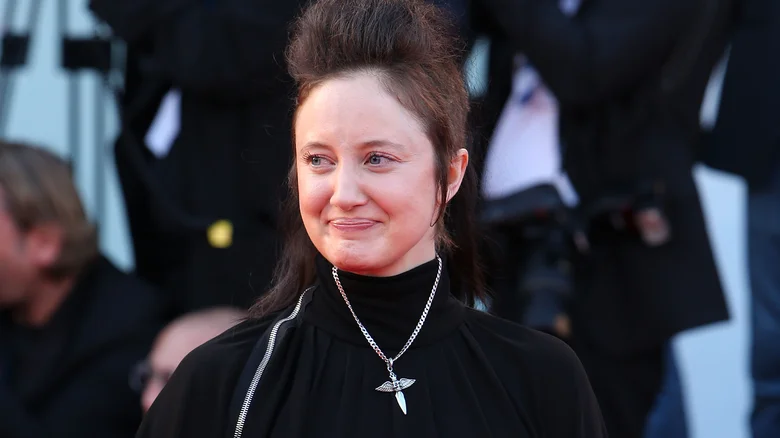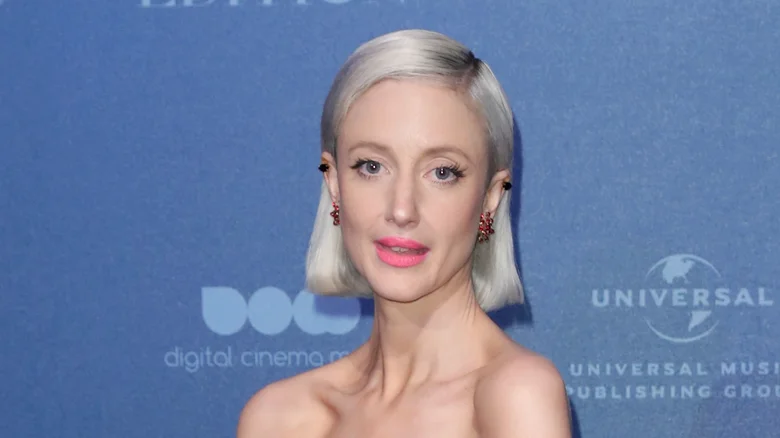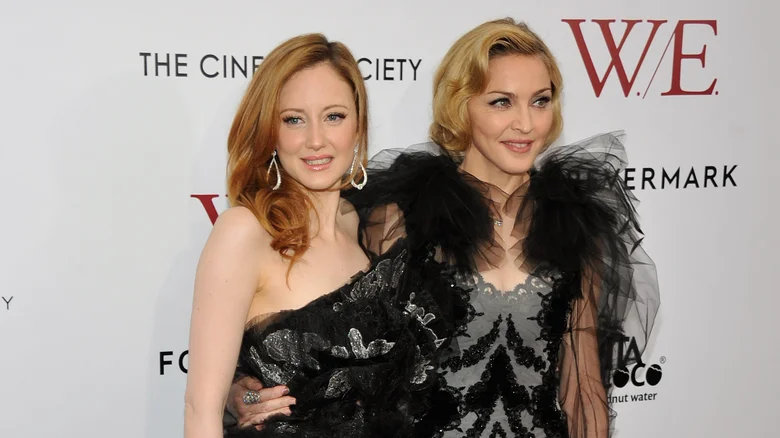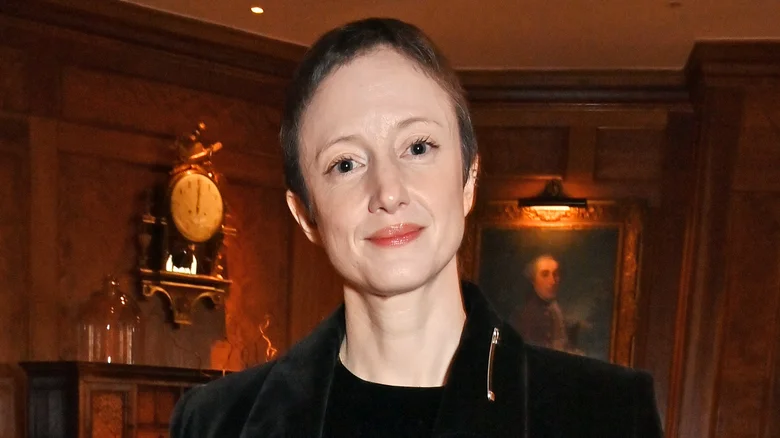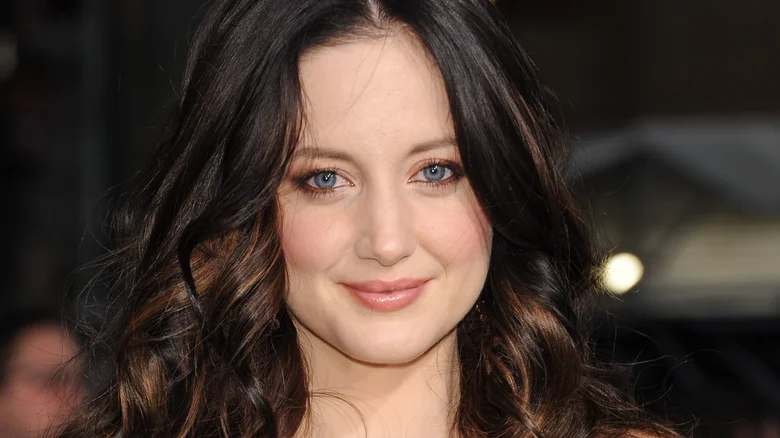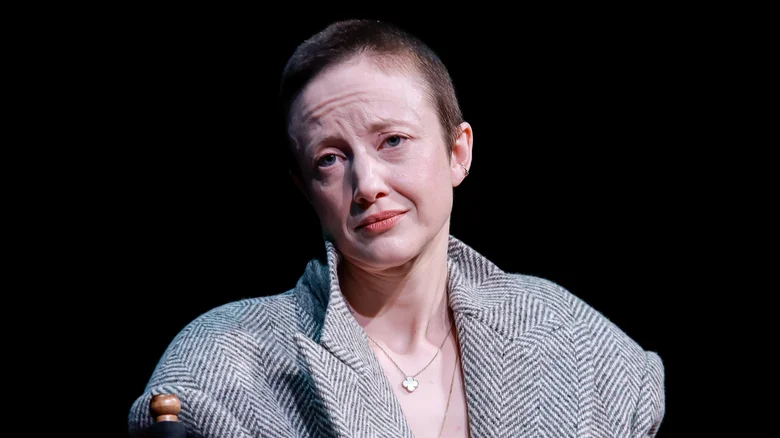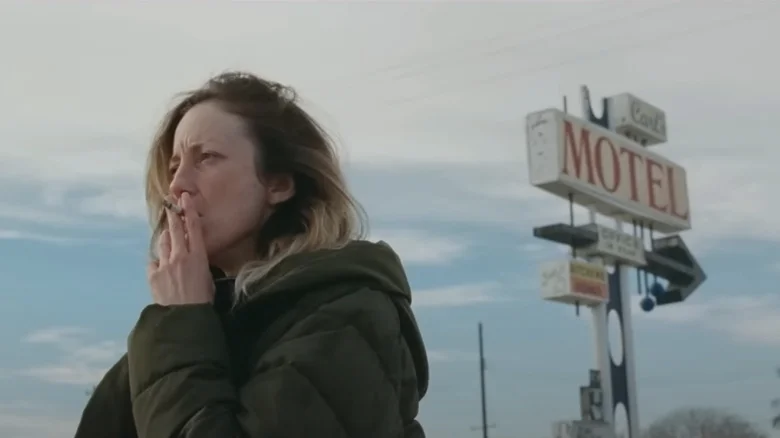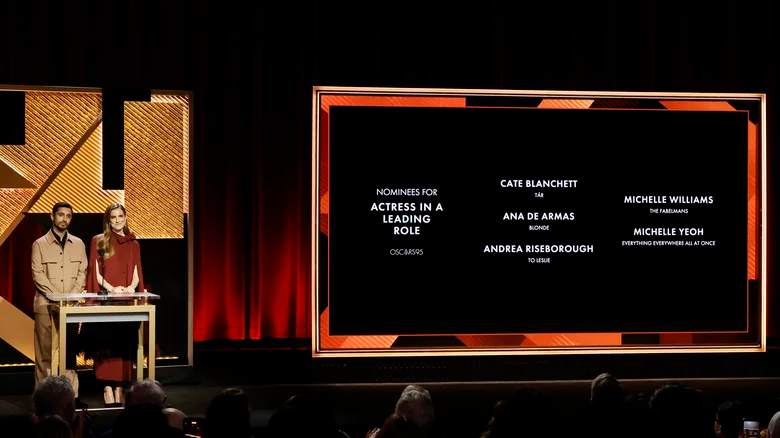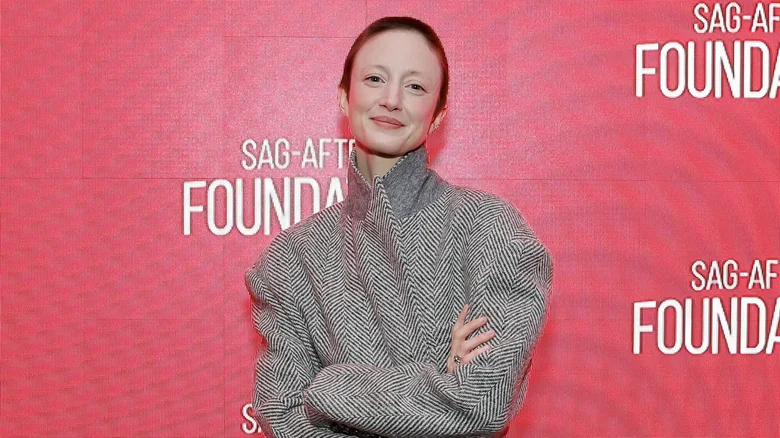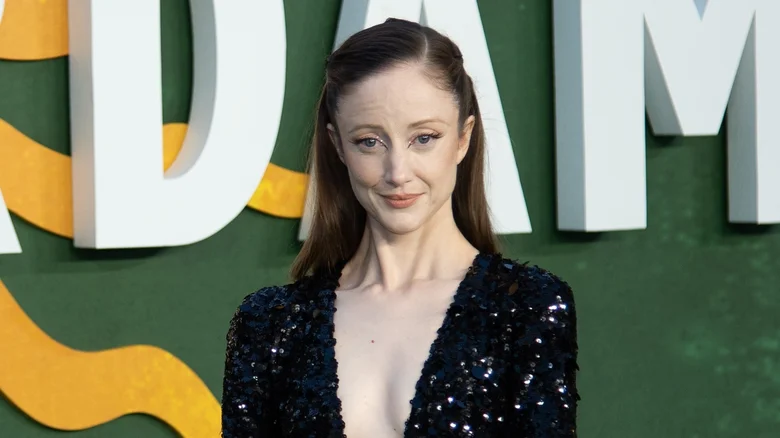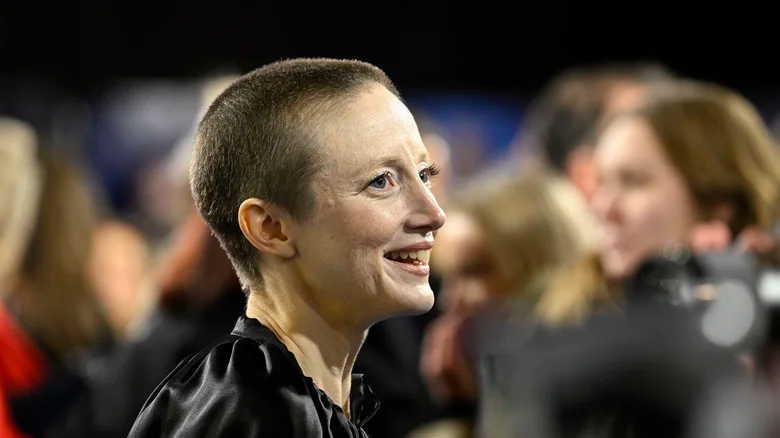The most well-known movie star that nobody has ever heard of is Andrea Riseborough. That’s obviously a bit facetious considering that the British actor has amassed more than 50 film and television credits since making her screen debut in a 2005 British TV movie and has since collaborated with some of Hollywood’s biggest celebrities. The enormous wave of surprise that erupted in 2023 when Riseborough was nominated for an Oscar in the Best Actress category for her portrayal in the low-budget independent film “To Leslie” didn’t let her remarkable screen credentials, though.
That surprising Oscar nomination not only caused surprise, but it also sparked unexpected criticism about Riseborough’s nominating process, leading to a thorough inquiry of the unconventional “To Leslie” Oscar campaign. In the end, that unexpected nomination served as a less-than-gentle reminder to the stiff Academy of Motion Picture Arts and Sciences that its regulations regarding Oscar campaigning desperately need to be updated in order to keep up with social media and the constantly developing technology that powers it.
Riseborough’s name has garnered more media attention since the nomination and the accompanying controversy than she had in her more than 15 years as a working actor. Learn more about Andrea Riseborough, an Oscar nominee, and her controversy by reading on.
She began acting at age nine
Early on, Andrea Riseborough decided she wanted to pursue a career in acting. At the age of nine, Riseborough accepted her first professional acting role with a nearby theatre group. Regarding how she decided to make her theatrical debut, she told W Magazine, “It was never truly a decision. “I was approached to participate in a play at a nearby classical theatre by someone. I initially refused, and it made me feel incredibly uneasy. Then, a week later, I mentioned that play to my mother. Perhaps I should read for it. And I started off by doing that.”
But by the time Riseborough was in her late teens, she had lost interest in acting.
In an interview with The Irish Times, she stated, “I didn’t really think I was going to do it again.” When asked why, she responded that she had left her parents’ house at the age of 17 and was taking her first steps toward independence and self-sufficiency. She said, “I had various jobs and my own tiny flat.
In reality, she believed that she had moved past acting, a childhood passion that no longer represented where she was in life. “I think you go through a moment of reckoning with anything when you grow up, when you have outgrown the way you were doing it,” she continued.
How shredding a duck in a Chinese restaurant prompted a revelation
Andrea Riseborough worked hard at a number of jobs after leaving her parents’ house at the age of 17, mostly in the service sector. She told The Irish Times that she had an epiphany while working at one of those restaurants, which helped her gain admission to London’s esteemed Royal Academy of Dramatic Art. She remembered, “There was a time when I worked in a Chinese restaurant. I distinctly recall the moment I realised I could simply apply to RADA while shredding a duck.
She did, and after being approved, her enthusiasm for performing was rekindled. Because of her pale, symmetrical features, she initially found herself playing a succession of virgins in Jacobean theatre performances, as she later admitted to The Guardian. She had an early understanding of the possibility of being cast in only certain kinds of roles as a result of that experience, something she vowed to avoid in her own career. Riseborough had played “a multitude of wacky characters” by the time she graduated, ranging in age from 17-year-old lads to adults in their 80s.
In 2006, she went on to get a small part in her debut movie, the drama “Venus,” starring Peter O’Toole. It was a poor introduction. She admitted to crying during her first scene, which featured Peter O’Toole, to W Magazine. “Basically, I did that. I entered, sobbed while wearing a white wig, then I left.”
The movie that changed the way she looked at acting on film
When she was cast in the small role of Laura, the actress and ex-girlfriend of disgraced 1980s actor Riggan Thompson (Michael Keaton), Andrea Riseborough had established a reputation as an unyielding performer with a talent for disappearing into performances. Alejandro G. Iárritu’s emphasis on extraordinarily extended takes, in contrast to conventional filmmaking, in which actors repeat a few lines of dialogue until the director yells cut, at which point they move on to more lines, made working with him for her an eye-opening experience.
However, Iárritu’s method required that the entire scene be reshot from scratch if an actor mispronounced even one word. She told The Washington Post, “Alejandro was aiming to accomplish a 360-degree experience, and that meant we all had to get the f**k out of the way.” “We had to hide behind whatever was available, be it a door, a flat, or something else entirely. Nobody wished to be the one to make a mistake.”
She compared the experience to doing live theatre and found it to be exhilarating.
Even though, as she subsequently told The Guardian, “the technical thing that we were attempting to achieve was so unattainable,” she said, “the pace of the piece and the energy of the piece was so like being onstage.”
The reason she ‘just stopped’ her career after appearing in an Oscar-winning film
After her performance in “Birdman,” which garnered four Oscar nominations and won the Academy Award for Best Picture, Andrea Riseborough made an unexpected decision: she put a halt to her career just as it was about to experience its most accolades and success. The challenge of filming really long scenes in a single take wasn’t the issue; instead, it was something quite different.
“At that time, I needed to get out of the studio mindset. She explained why she “simply stopped” performing after “Birdman” to The Guardian in 2022: “It hadn’t been satiating, for a variety of reasons.” Of course, by that point, she had overcome her problems. Thankfully, things had changed significantly, and she acknowledged that she had allowed herself to rediscover her passion for what she was doing.
Riseborough claimed that she had fallen into a trap that awaits everybody in the arts who finds economic success because that success raises the stakes and necessitates even more and bigger achievements, which require the constant temptation of creative compromise to make that happen.
She was honest when she said, “You think you’re going to talk about Chekhov, and you find yourself talking about stuff you’re not interested in, in order to sell a product.” “You feel like a small cog in this big machine.”
Andrea Riseborough has played a jaw-dropping breadth of roles
The diversity of Andrea Riseborough’s cinematic credentials demonstrates how versatile she is as an actor. The Grudge detective attempting to solve a supernatural mystery, Mrs. Wormwood in “Matilda: The Musical,” and even historical figures like Wallis Simpson, Duchess of Windsor, in “W.E.” and young Margaret Thatcher in “The Long Walk to Finchley” are among the roles he has played in a variety of different productions. She also portrayed the titular role in Nicolas Cage’s gore-drenched fever dream “Mandy” and Billie Jean King’s lesbian lover in “Battle of the Sexes”
Beyond the enormous diversity of her roles, the ones that she declined to play may be just as significant. “I declined projects that I thought I couldn’t contribute to since they were so outside of my area of expertise. If it weren’t a creative challenge enough, “To The Irish Times, she spoke.
Riseborough has also been pleased to acknowledge that she has eschewed what she called “traditional gender stereotypes” because she didn’t want to be accountable for upholding the latent misogyny of playing a male protagonist’s girlfriend who resembles an appendage. She does, however, think that refusing those roles outright has immensely aided in providing her the kind of acting career she had always hoped for. She continued, “If you reject those early on, the message gets out there.”
She starred in a movie about a notorious royal directed by Madonna
The movie “W.E.” was the one that put actress Andrea Riseborough firmly on the radar of Hollywood. Riseborough played Wallis Simpson, an American divorcee who had an illicit romance with Britain’s King Edward VIII, which caused him to abdicate. Simpson was undoubtedly one of the more divisive individuals of the 20th century, but Madonna, who directed the movie, is just as controversial.
Riseborough revealed to W Magazine that Madonna was drawn to her portrayal of a youthful Margaret Thatcher. “It was strange since it felt cosy and wonderful when I went to her place and had a cup of tea with her. I suppose we clicked “She spoke. In the end, she said to The Guardian, Madonna and she shared a same vision for how to represent Simpson. Riseborough claimed, “I think we were simply really complicit in how we felt about Wallis Simpson and what she was like in private. She had looked inside the back legs of it.
While “W.E.” received harsh, bordering on brutal reviews, some critics were quick to laud Riseborough’s performance as surpassing that of the movie; for instance, Film School Rejects praised Riseborough for “her terrific performance as Simpson, which could have served as the core of a great picture.”
Her biggest fear is to be in projects that are ‘crap’
Andrea Riseborough has developed a deceptively straightforward approach for choosing which jobs to accept and which to reject: if she thinks the result won’t be something she’ll be happy of, she’ll walk away. She jokingly told Collider, “I am definitely frightened of trash. She was quick to point out that there might be different levels of trash, so it’s not always so clear-cut. She also noted that taking on a fantastic role in a production with a poor screenplay might be risky and require a tonne of additional work “Consequently, you are not playing a single character. You aren’t performing your one task. All of a sudden, you are a co-author. You’re assuming much more now.”
She didn’t acquire this quality over time; rather, it has directed her ever since the beginning of her professional life.
She told The Irish Times, “I think standards are feasible. “Those are the things that haven’t changed, even back when I was having rent problems.”
Riseborough has acknowledged that she can be pretty obstinate about which projects she will work on and which ones she won’t. She sighed and said, “Well, I’d rather get a day job than do certain things in the sector.” She continued, “For some reason, there has always been this level in my head of what I will and won’t do.
“She admits that not being famous after all her movies is ‘hard on the ego’
Andrea Riseborough has had a great Hollywood career thanks to her chameleon-like ability to completely embrace her characters, but it has also kept her from becoming more famous, which isn’t necessarily a negative thing. In an interview with Metro UK, she acknowledged, “In a way, I’m extremely relieved.” She acknowledged that there is a drawback nevertheless. And in another, I feel as though I haven’t done my work well enough to be acknowledged, like I’ve been stabbed in the heart. But in the end, Riseborough understands that the fact that she isn’t extremely well-known simply indicates that she has completed the goals she set for herself as an actor. When she wasn’t acknowledged, she continued, “but then I know that the way I like to perform my work, I’ve done it well.” On the other hand, she admitted, “It’s tough on the ego.”
Since she was a young girl and used to imitate her friends’ characteristics to amuse herself, she has had the capacity to disappear inside a character. She told W Magazine, “I really enjoy picking up the physical beat of someone else, speaking with their voice.
She is actually unable to think of any other method of acting than the one she has chosen. She stated, “I’ve never done anything in my own voice and I can’t even begin to comprehend what it would be like. It would probably be strange.
She’s spoken out about Hollywood’s shocking disparity between male and female actors
The pay gap between male and female actresses in Hollywood, where males traditionally make much larger compensation than women, is one topic that is sure to make Andrea Riseborough’s anger boil. “In actuality, I still receive one-twentieth of the salary of my male co-stars. any situation, “the Big Issue, she revealed. I have no words to express how aggravating it is.
She also discussed another difference between the careers of male and female actors, namely the short lifespan of a woman’s career as a so-called leading lady. Women’s jobs don’t last as long, she acknowledged, because few of them are hired as soon as wrinkles start to show. It is a really stressful aspect of what women, in my opinion, deal with on a daily basis.
By establishing her own female-led production business, Mother Sucker, Riseborough has done more than merely voice her dissatisfaction with the system. Mother Sucker was created, as she stated to Metro UK, “simply to give more opportunity to women in film.” That was confirmed by a movie her company made, the crew of which, she told Entertainment Weekly, was 90% female.
How she connected with playing an addict in To Leslie
None of the roles Andre Riseborough has taken on has garnered her as much praise from critics as the titular part in the 2022 independent film “To Leslie.
“To Leslie” follows the journey of the titular Leslie, an East Texas woman who won nearly $200,000 in a lottery and squandered it all, leaving her bitter, broken, and slipping into alcoholism. Michael Morris is a well-known television director whose credits include “Better Call Saul,” “Shameless,” and “House of Cards.” The movie, which was shot in just 19 days, is based on the true story of author Ryan Binaco’s mother and the writer’s own traumatic childhood.
According to Riseborough’s interview with Deadline, Leslie’s brighter moments helped Riseborough empathise with the character and comprehend her addiction.
“It’s honest to let her have a drink when she’s happy since that is the most natural human instinct. “I’m glad, and I want to rejoice.” I want to be even more joyful “Added Riseborough. “For everyone of us, happiness is such a fleeting beast.”
Riseborough’s complete and entire dedication to portraying Leslie’s truth, however cruel and occasionally unpleasant it may have been, was the secret ingredient that allowed her to embody the character so completely in this role as well as all her others. But she added, “I think, no matter what you do, it just isn’t going to work if you can’t really dedicate yourself to presenting the tale.
Even Andrea Riseborough couldn’t believe she was nominated for an Oscar
Most of the Actress in a Leading Role categories were anticipated when actors Riz Ahmed and Allison Williams revealed the 2023 Academy Award nominees on the morning of January 24:
The controversial character study “Blonde,” starring Ana de Armas as Marilyn Monroe, and Cate Blanchett as a symphony conductor. In the semi-autobiographical “The Fabelmans,” Michelle Williams portrayed Steven Spielberg’s mother, while in “Everything Everywhere All At Once,” Michelle Yeoh portrayed a bewildered mother and wife who unexpectedly travelled across the metaverse. Andrea Riseborough was additionally nominated for “To Leslie,” prompting numerous questions like, “Andrea who? ‘To what?’ in”
The shock Riseborough herself experienced upon seeing her name on that roster didn’t even come close to the shock the broader public experienced upon seeing Riseborough’s name on that list of nominees.
According to Riseborough, it “kind of feels strange.” Riseborough went even farther in her interview with Entertainment Weekly to convey her amazement at being a first-time Oscar candidate. It has been quite perplexing, she said.
When Riseborough learned she had been nominated, she told Deadline, “I’m stunned.” We really hadn’t been considered for anything else, so it was difficult to think that it might actually happen. “Despite having a lot of support, the possibility that it may actually happen seemed so remote.”
How Andrea Riseborough snagged an Oscar nomination for a movie nobody saw
The typical moviegoer might not be aware that getting an Oscar nomination rarely results from just giving a terrific performance in a movie.
It nearly invariably follows a months-long studio-mounted campaign during which the prospective contender attends what seems like an endless series of industry functions during award season, a procedure not all that dissimilar from running for public office. Billboards, posters, and “For Your Consideration” ads are placed in trade publications for the film industry, and they are all expensive and require a large film studio.
That raises the question of how Andrea Riseborough received an Oscar nomination for a small-budget independent film without the support of a major company. Everything started in October 2022 when Howard Stern revealed to his audience that he had seen “To Leslie” and adored it after receiving a copy from Mary McCormack, who had portrayed his wife in his movie “Private Parts” and was married to Michael Morris, the director of “To Leslie.” In actuality, McCormack organised her own spontaneous, grass-roots campaign using the influence of social media.
According to an email acquired by Variety, McCormack started asking her friends and associates in Hollywood to support the movie on their personal social media accounts.
It would be fantastic if you will post each day between now and January 17th, when voting for Oscar nominees closes. McCormack composed.
Some protests complained that her Oscar nomination stemmed from racism
Not just Andrea Riseborough’s inclusion on an otherwise predictable list of Oscar candidates caught people by guard. In fact, industry watchers made the unsettling observation that every nominee on the list was Caucasian save actress Michelle Yeoh. That proved to be especially upsetting for Black actresses and directors who pointed out that performances like Viola Davis’ in “The Woman King” or Danielle Deadwyler’s in “Till” were both deserving of an Oscar.
On social media, the #OscarsSoWhite hashtag from a few years ago started surging once more. In addition, “Till” director Chinonye Chukwu lambasted Hollywood in a harsh Instagram post, accusing it of “upholding whiteness and maintaining an unashamed misogyny towards Black women.”
While Riseborough received a nomination by forgoing the typical Oscar campaigning, Black female actresses who did participate in the regular Oscar campaign, according to Los Angeles Times film critic Robert Daniels, highlighted the intrinsic racism in the Academy Awards. What does it say when someone who did everything outside of the system gets honoured when Black women who did everything the institution required of them — fancy dinners, exclusive academy screenings, meet-and-greets, splashy television commercials and magazine profiles — are ignored? Daniels made a pointed remark.
Andrea Riseborough’s Oscar nomination triggered an Academy investigation
The Academy reacted in an automatic manner, as it frequently does whenever the Oscar nominations are questioned. While Andrea Riseborough or “To Leslie” were not mentioned in the investigation, Variety reported that “We are conducting a review of the campaign procedures around this year’s nominees, to ensure that no guidelines were violated, and to inform us whether changes to the guidelines may be needed in a new era of social media and digital communication.”
Marc Maron, Riseborough’s “To Leslie” co-star, criticised that review, saying that a grassroots campaign for a low-budget independent film upsets the established order and the big money involved.
Andrea was supported by her peers through a grassroots campaign that was pushed through by a few actors, according to Maron. “Millions of dollars [are] put into months and months of advertising campaigns, publicity, and screenings by large corporate entertainment entities,” Maron said. In a since-deleted Instagram post, Christina Ricci stated, “So the only things that merit praise are the movies and the actors who can afford the advertising campaigns? It strikes me as being aristocratic, exclusive, and quite retrograde.”
Riseborough’s nomination was approved following the review.
In a statement to CNN, Academy CEO Bill Kramer stated, “The Academy has judged the action in question does not reach to the level that the film’s candidature should be retracted.”

